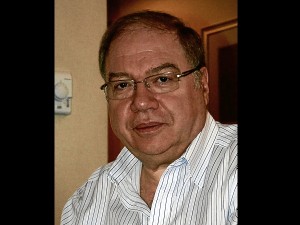During last year’s 6th Asia-Oceania Conference on Obesity held in Manila, it was acknowledged that the region is now facing an epidemic of obesity.
Citing a National Statistics Coordination Board survey, it was revealed that in Malaysia, 14.1 percent of the people are now classified as obese. It’s 8.5 percent in Thailand, 7.9 percent in Brunei while it’s 6.4 percent in Singapore.
But while the number of obese individuals in the Philippines are just 5.2 percent of the population—much lower than its neighboring countries—another NSCB survey revealed that 26.6 percent Filipinos are already overweight. This is a significant leap from the 16.6 percent figure recorded in 1993.
Being overweight increases a person’s chances of becoming obese later in life.
Epidemic?
“Thanks to this rising cases of obesity and of being overweight, the region, including the Philippines, may soon face an epidemic of non-alcoholic fatty liver disease (NAFLD), a major cause of chronic liver disease,” announced world-renowned gastroenterologist and hepatologist Asad Dajani.
Dajani explained that NAFLD is fast becoming one of the top concerns for doctors due to the fact that it is related to obesity as well as NAFLD’s potential to progress to advanced liver disease.
“In my (last week’s) report before Filipino gastroenterologists and hepatologists, I highlighted this serious concern for the future, and the enormous increasing health burden because NAFLD is associated with obesity, insulin resistance (prediabetes) or diabetes, having high blood pressure, and even elevated blood fats,” Dajani said.
Buildup
The NAFLD is the buildup of fats in the liver cells of people who do not drink alcohol excessively. It’s the most common liver disorder in more developed countries and a key contributor to the rising number of chronic liver disease cases.
“A healthy liver should contain little or no fat. Most people with NAFLD only carry small amounts of fat, which doesn’t usually cause any symptoms and isn’t harmful to the liver. This early form of the disease is known as simple fatty liver, or steatosis,” Dajani explained.
This is where the problem lies: Just because having simple fatty liver is harmless, it doesn’t mean it is not a serious condition. According to Dajani, if the fats continue to build up and get worse, it can eventually lead to non-alcoholic steatohepatitis, a more aggressive form of NAFLD, wherein the liver is already inflamed.
“Some people with non-alcoholic steatohepatitis go on to develop fibrosis, wherein the persistent inflammation in the liver results in the production of fibrous scar tissues around the liver cells and blood vessels,” Dajani said.
Once these bands of scar tissues and clumps of liver cells develop, the liver eventually shrinks and becomes lumpy, a condition known as cirrhosis. At this stage, liver damage may be permanent and death could ensue if liver transplantation is not immediately considered.
Currently, the only treatment for individuals found with NAFLD is weight loss considering most of them also suffer from obesity or have elevated blood lipids (fat). Otherwise, those who are diabetic and with poor control of blood sugar are asked to work with a diabetes specialist and dietitian.
Needless to say, all patients with NAFLD should avoid alcohol.
No drug, yet
“The treatment for NAFLD is evolving and rigorously being investigated in various research studies. While there is no particular drug, yet, to treat NAFLD, basic healthy lifestyle, including dietary modification and exercise, has been proven to be effective,” said Dajani, adding that other drugs can be recommended for those also suffering from hypertension or with concomitant co-morbidities.
However, among the so-called hepatoprotectors (those that protect the liver) available in the market today, Dajani said essential phospholipids (Essentiale Forte P), which are complex substances of natural origin and unsaturated fatty acids, offer much potential as it is found in various clinical studies to support regeneration of damaged liver cells in patients with NAFLD.
“This is interesting as essential phospholipids has the distinction of being the only natural supplement today that has been clearly shown in clinical studies to normalize liver function and even promote regeneration of liver cells,” said Dajani, adding that its continued use could have an impact in stopping NAFLD in its destructive path.


